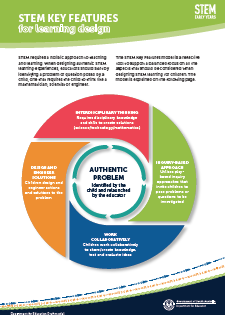Overview
STEM Planning brings together various tools and resources to support educators and leaders plan and implement effective STEM teaching and learning.
This category:
- Features tools for data collection and learning design to support educators plan for STEM learning
- Provides educators with a starting point to reflect on and discuss STEM learning
- Invites educators to 'check in' on current STEM learning design at their site.

